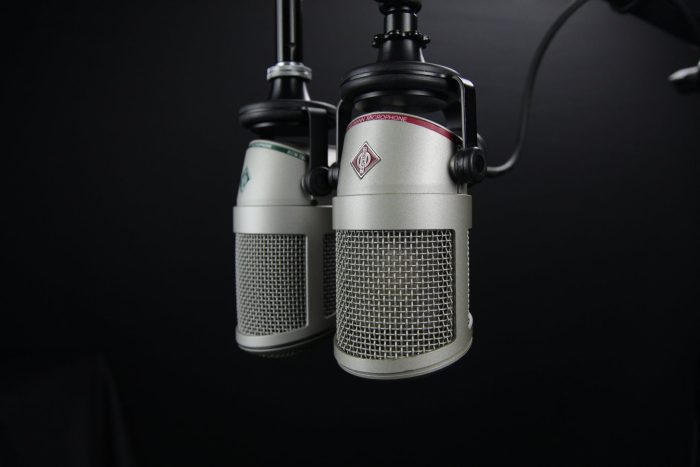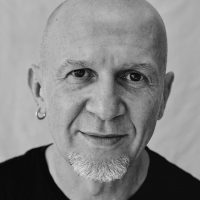Hello All, I’m Carl Vreeland and this is the podcast “Close to the Bone.”
This is episode #39, it’s called, “The Empath.”
What is an empath? The Merriam-Webster definition is: one who experiences the emotions of others : a person who has empathy for others.
Sounds like a good quality. Let’s look further. . . an empath has been referred to as a sensitive soul, an artist, and a creative type. They supposedly have a heightened intuition, can read people’s motives well, and are a good judge of character. They can feel the emotions of others with great intensity. They can soak up the ills and pains of others. In certain circles they are thought of as healers and gifted beings. They seem to possess a deep-connection to nature.
These descriptions, typically heard in the New Age realm, no doubt romanticize the image of the empath. They compare the empath to an enlightened being or shaman. But I’d like to show otherwise. Beginning with my personal experience, reflecting on my past perspective and experience of the world, thinking of myself as a sensitive, artist type was just an excuse for my emotional, psychological, and spiritual immaturity. More accurately, I was a depressive. And I was self-centered. It seems that the current term now used for this kind of sensitive type is empath. That said, unlike popular opinion, I believe an empath is not a desirable state of being. An empath is not some special soul sent from the gods, as some see it. No, I believe an empath is a suffering soul, a spiritually sick individual, lacking emotional boundaries, easily triggered, unable to live comfortably with the harsh realities and vicissitudes of life. They are fearful of intimacy and rejection. In fact, empaths tend to isolate largely because they are easily taken on an emotional roller-coaster ride. Granted, I am not a doctor. But like most subjects I speak about, outside of my personal experience, I embark on a great deal of research. That said, in this day and age, one should be skeptical of everything they read and hear, no matter the source, so do your due diligence.
But to go on. . . as an empath, having the ability to tune into emotions more acutely than most others is not some gift that is helpful to anyone including the empath, so it shouldn’t be looked at that way. Likewise, one shouldn’t confuse empathy for compassion. Compassion, as define by Merriam-Webster, means: a feeling of wanting to help someone who is sick, hungry, in trouble, etc. Empathy, according to the same source, means: the action of understanding, being aware of, being sensitive to, and vicariously experiencing the feelings, thoughts, and experience of another. . . you get the gist.
In other words, and again, empathy doesn’t necessarily help anyone, unless one is compassionate as well. Problem with the empath is that they are typically too overwhelmed and debilitated by other’s emotions to be useful to anyone. They are incapable of helping others because they get too easily get caught up in the mess of others.
At this point, you may be thinking, “Aren’t you being a bit judgmental?” On the contrary, I am trying to de-glamorize, de-romanticize, and demystify the current idealized view of the empath. The current view of the empath as being a special, gifted being, possessing a unique ability to feel and sense what others cannot is misleading. And again, it helps no one, including the empath.
In an article called “Empathy and the Empath Phenomenon1” freelance writer, Jeanna Smiley writes. . .
The American Empath Association defines empaths as people who can detect the thoughts and feelings of other people, places, animals, or objects. Empaths not only discern these emotional states and physical feelings; they absorb them as well. The AEA states that this innate ability “defies conventional science and psychology.”
Sounds special. Which is one reason why the empath falls into a trap of feeling special. But the fact is; it’s no way to live, and again, it helps no one. Yes, empathy can lead to compassion, but being an empath leads to paralysis. The author goes on. . . .
. . . many people hold that empaths also detect and absorb energy from other people, animals, plants, and inanimate objects. Empaths understand that energy gets exchanged in every interaction with others and they feel this energy — or “vibe” — deeply.
Again, special, and it all may be true, but it’s not a functional state of being. When I think back on my life, I was made to feel special. I was quirky, fastidious, a loner, intelligent, a gifted, young musician, who was very introspective and introverted. I was later a troubled teenager, yet looked at as interesting and curious. But in reality, I was, in fact, shy, depressed, uncomfortable in my skin, suffering from obsessive compulsive disorder and debilitating anxiety, and slowly turning into an alcoholic and drug abuser. But I was a creative person, and viewed as and treated as someone who was very intriguing and mysterious. And so, understandably, I thought, OK, I guess I must be special. And so I played that role, that is, the one that society and the people around me painted of me. But, truth be told, not unlike the empath, I was this way because I suffered an early childhood trauma. When we turn to the sciences, in regards to the empath, we find that genetics could play a role as well, nevertheless, there is usually some kind of neglect or abuse involved.2
To the point, an empath is not a state of being we should romanticize or pedestalize, they need help, and so we should be truthful and honest about it, and see beyond the mystique, in order to help them see themselves for what they are; suffering souls who need help. Again, writer Jeanna Smiley, speaking of the distinctions between empathy and the empath. . .
When our hearts go out to others in need, or we put ourselves in someone else’s shoes, we are feeling empathy that moves us to speak or act benevolently. Empathy causes us to feel deeply for others, but empaths literally experience the emotions of others as their own.(1)
And so, as an empath, one shouldn’t settle for this way of being. In fact, one shouldn’t settle for anything that is not in one’s best interest. I wholeheartedly believe they we are not imprisoned by our current state of being, whatever it may be. We can change. Judith Orloff, M.D. writes. . .
Healing is possible for all sensitive people. . . . Part of this involves learning to set healthy boundaries with others and choosing positive people in your circle who can support your sensitivities. In addition, protection and centering techniques and meditations can help to strengthen your core so you can be both strong and sensitive.(2)
In her book, The Empath’s Survival Guide, Dr. Orloff offers many techniques that can aid the empath toward feeling safer and more secure in life. And I for one, can’t say enough about the benefits of having a regular meditation practice. There are many types of meditation practices and techniques, it’s simply a matter of exploring them and finding the right one for you.
Look, we don’t have to buy into this New Age way of thinking, whereas our flaws, issues, and quirks are who and what we are destine to be. We don’t have to suffer, and we don’t have to remain stuck in a state of suffering. There is hope, and there is help out there. We just have to ask for it.
I hope this podcast episode was helpful. As always, thank you for listening. If you enjoy this podcast, please share it with others. And a good way to support it, and the transcripts I’ve been posting on my blog, would be to subscribe to my free newsletter on my website. Just go to carltvreeland.com and go to the support page. You can also go to Apple Podcasts as well and give the podcast a Star-Rating or a Review. It’s a simple and effective way to support all my free content. Thank you again.
- Smiley, Jeanna. Empathy and the Empath Phenomenon, published on the website Facty Health. Updated: 21 January 2021.
- Orloff, Judith, M.D. Four Reasons Why People Become Empaths: Trauma to Genetics, published in Psychology Today. 22 June 2017.












Read 0 comments and reply